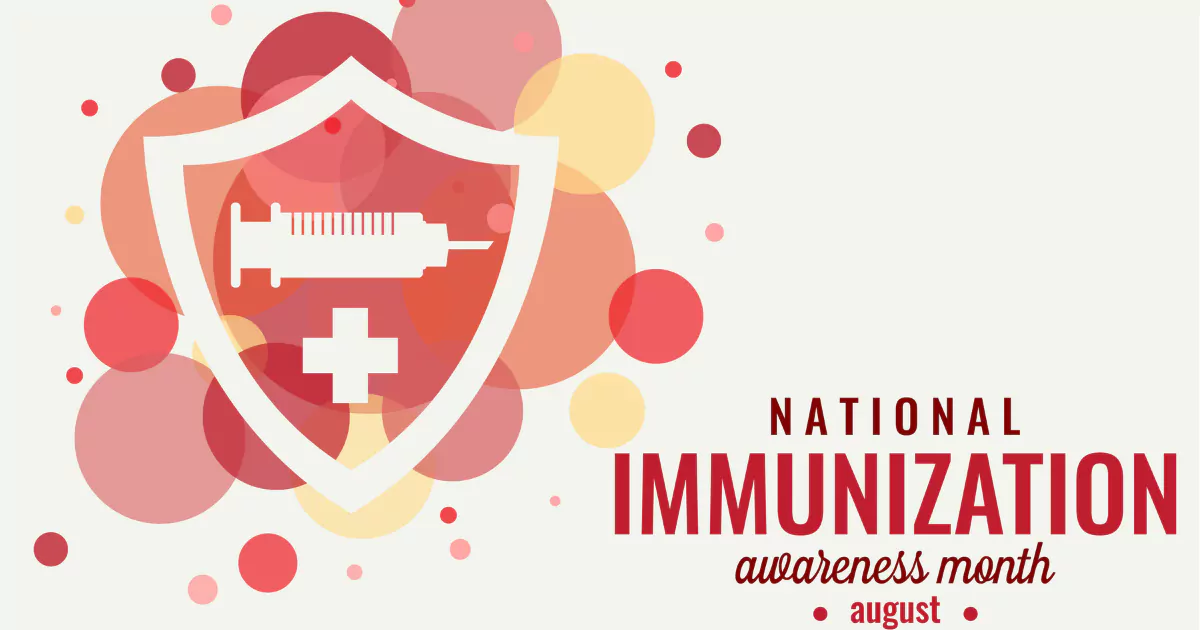
Responsum Health Observes National Immunization Awareness Month
August is National Immunization Awareness Month, an annual event meant to highlight the importance of vaccination for people of all ages. The Centers for Disease Control and Prevention (CDC) offers a comprehensive array of resources for patients, advocates, healthcare professionals and the general public to help empower, educate and encourage immunization at every age.
A Special Meaning in 2021
As we pass the halfway point of National Immunization Awareness Month, we can’t help but feel its weight and importance at least a little more this year. With the continued rise in COVID cases brought on largely by the Delta variant, and an immense swath of the American population still un- or under-vaccinated, there is a concerted effort to appropriately educate and engage the public in immunization purposes and benefits:
- Child COVID hospitalization cases have reached record highs.
- The seven-day fatality average is up over 20 percent.
- The highest rates of new and cases are occurring in areas with large unvaccinated populations.
The CDC now recommends that people whose immune systems are compromised moderately to severely should receive an additional dose of mRNA COVID-19 vaccine after the initial 2 doses. Additionally, the Biden Administration is expected to recommend a booster after eight months from the last dose of vaccine.
Immunization Protects People of All Ages from A Variety of Diseases
The enduring value of events like National Immunization Awareness Month is that they remind of the importance of vaccines at various stages of life, something that may be easy to forget:
Recommended Vaccines for Pregnant Women:
- Measles, Mumps, Rubella (MMR) Vaccine: At least a month before becoming pregnant
- Tetanus, Diphtheria, and Pertussis (Tdap) Vaccine: During the third trimester of pregnancy.
- Yearly Seasonal Flu Vaccine: By the end of October, if possible.
Recommended Vaccines for Infant and Toddler Years (Birth to Two Years Old):
- Chickenpox (Varicella) Vaccine: 12 through 15 months.
- Diphtheria, Tetanus, and Pertussis (DTaP) Vaccine: At two months, four months, six months, and 15 through 18 months.
- Flu Vaccine: Every year by the end of October, if possible, starting at 6 months.
- Haemophilus Influenzae Type B (Hib) Vaccine: At two months, four months, six months (if needed; depends on brand), and 12 through 15 months.
- Hepatitis A Vaccine: At 12 through 23 months and a second dose six months following the first dose.
- Hepatitis B Vaccine: Shortly after birth, at one through two months, and six through 18 months.
- Measles, Mumps, Rubella (MMR) Vaccine: At 12 through 15 months; however, infants six through 11 months old should have one dose of MMR vaccine before traveling abroad.
- Pneumococcal (PCV13) Vaccine: At two months, four months, six months, and 12 through 15 months.
- Polio (IPV) Vaccine: At two months, four months, and 6 through 18 months.
- Rotavirus (RV) Vaccine: At two months and four months (for Rotarix brand); or two months, four months, and six months (for RotaTeq brand).
Preschool and Elementary School (Three to Ten Years Old):
- Chickenpox (Varicella) Vaccine: At four through six years.
- Diphtheria, Tetanus, and Pertussis (DTaP) Vaccine: At four through six years.
- Flu Vaccine: Every year by the end of October, if possible.
- Measles, Mumps, Rubella (MMR) Vaccine: At four through six years.
- Polio (IPV) Vaccine: At four through six years.
Preteens and Teens (11 to 18 Years Old):
- Flu Vaccine: Every year by the end of October, if possible.
- Human Papillomavirus (HPV) Vaccine: At 11 through 12 years and a second dose six-12 months following the first dose.
- Meningococcal Conjugate Vaccine: At 11 through 12 years and at 16 years.
- Serogroup B Meningococcal Vaccine: May be given at 16 through 23 years. Talk to your child’s doctor if interested.
- Tetanus, Diphtheria, and Pertussis (Tdap) Vaccine: At 11 through 12 years.
The CDC recommends that adults over 18 get a yearly flu shot, a Td vaccine every 10 years and a shingles vaccine if they’re healthy and over 50. Adults 65 years or older need one dose of pneumococcal conjugate vaccine followed by one dose of pneumococcal polysaccharide vaccine.

